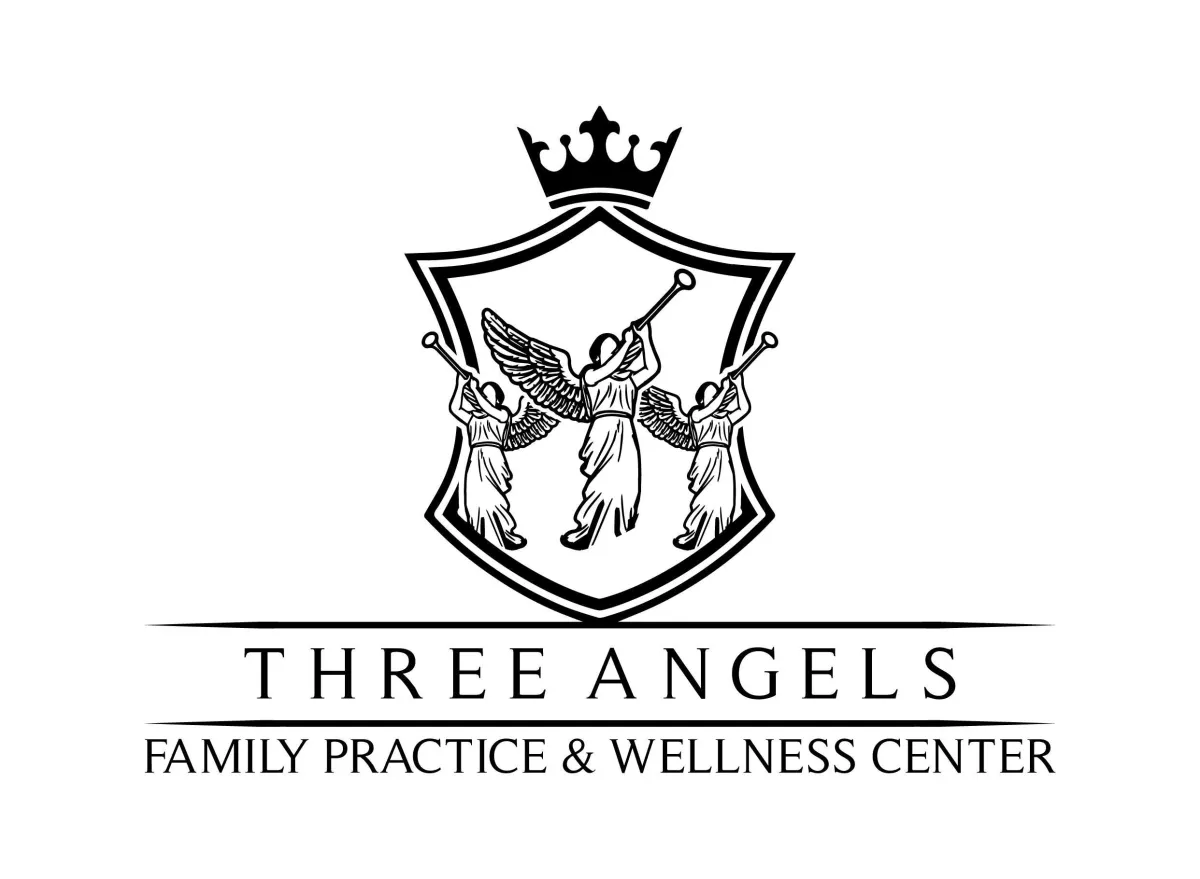
BLOGS

BLOGS

5 Risk Factors for Chronic Disease
5 Risk Factors for Chronic Disease
You have a lot of company if you’ve been diagnosed with a chronic disease. The CDC says more than half of the American population has been diagnosed with at least one chronic medical condition, like heart disease, respiratory diseases, hypertension, arthritis, cancer, and diabetes. More than 27% have more than one chronic condition.
At Three Angels Family Practice & Wellness Center, Danette J. Joseph, MD, helps patients in Hershey, Pennsylvania, manage their chronic diseases with patient-centered primary and preventive care focused on each patient’s evolving needs. In addition, Dr. Joseph helps patients take important steps to prevent chronic diseases, beginning with understanding their unique risk factors. Here are five common risk factors she wants you to know about.
CHRONIC DISEASE RISK FACTORS
Risk factors can be roughly divided into two types: modifiable and nonmodifiable. Modifiable risk factors are factors you can change, while nonmodifiable factors are essentially out of your control.
Age and genetics are two common nonmodifiable risk factors that you can’t change. This list looks at modifiable risk factors that are, more or less, under your control.
1. SMOKING
Most people know that smoking is a major risk factor for chronic respiratory diseases like asthma, chronic obstructive pulmonary disease, heart disease, and stroke. But because it damages your blood vessels and interferes with blood flow, smoking also plays a role in other chronic diseases. The CDC says smoking is the leading cause of preventable death in the United States.
Quitting the smoking habit isn’t easy, but its benefits are widespread — and quick. Some studies show the benefits begin in as little as an hour after you take that last puff. Dr. Joseph can point you to resources to help you quit, and you can find plenty of resources online, too.
2. EXCESSIVE ALCOHOL CONSUMPTION
Like smoking, excessive drinking affects multiple organs, increasing your risks of high blood pressure, heart disease, stroke, liver disease, some cancers, and digestive problems. Most people who are excessive drinkers are not alcoholics; they’re people who engage in behaviors like binge drinking or heavy drinking — 8 or more drinks per week for a woman or 15 or more drinks per week for a man.
3. POOR NUTRITION
Eating a healthy diet plays a critical role in preventing chronic diseases like high blood pressure, heart disease, obesity, and diabetes. Look for opportunities to add more fiber to your diet, including fruit, vegetable, and whole-grain sources. Limit unhealthy fats, sodium, and sugars, all of which increase your risk of health problems.
4. LIMITED PHYSICAL ACTIVITY
Today, many of us spend hours sitting down at our jobs and at home in front of our TVs, laptops, and phones. It might feel good at the moment, but all that inactivity takes a big toll on your health in the long run.
The CDC says regular exercise reduces your risks of diabetes, heart disease, depression, dementia, and many types of cancer. You don’t have to run a marathon either — just a half hour of brisk activity five days a week can make a big difference to your health.
5. CARRYING EXTRA POUNDS
Being overweight increases your risks of hypertension, heart disease, stroke, diabetes, depression, and other chronic diseases. Losing weight helps reduce those risks, and it can also improve your mood and your sleep habits.
The good news is: You don’t have to lose a lot to make a difference. Losing 5%-10% of your weight can help reduce your blood pressure, cholesterol levels, and glucose.
TAKE CONTROL OF YOUR HEALTH
Understanding your modifiable risk factors is the first critical step in learning to lead a healthier lifestyle, and it’s also an important step in avoiding chronic illnesses as you get older. To learn what else you can do to stay healthy at every age, call (717) 298-1268 or book an appointment online with Three Angels Family Practice & Wellness Center today.

5 Risk Factors for Chronic Disease
5 Risk Factors for Chronic Disease
You have a lot of company if you’ve been diagnosed with a chronic disease. The CDC says more than half of the American population has been diagnosed with at least one chronic medical condition, like heart disease, respiratory diseases, hypertension, arthritis, cancer, and diabetes. More than 27% have more than one chronic condition.
At Three Angels Family Practice & Wellness Center, Danette J. Joseph, MD, helps patients in Hershey, Pennsylvania, manage their chronic diseases with patient-centered primary and preventive care focused on each patient’s evolving needs. In addition, Dr. Joseph helps patients take important steps to prevent chronic diseases, beginning with understanding their unique risk factors. Here are five common risk factors she wants you to know about.
CHRONIC DISEASE RISK FACTORS
Risk factors can be roughly divided into two types: modifiable and nonmodifiable. Modifiable risk factors are factors you can change, while nonmodifiable factors are essentially out of your control.
Age and genetics are two common nonmodifiable risk factors that you can’t change. This list looks at modifiable risk factors that are, more or less, under your control.
1. SMOKING
Most people know that smoking is a major risk factor for chronic respiratory diseases like asthma, chronic obstructive pulmonary disease, heart disease, and stroke. But because it damages your blood vessels and interferes with blood flow, smoking also plays a role in other chronic diseases. The CDC says smoking is the leading cause of preventable death in the United States.
Quitting the smoking habit isn’t easy, but its benefits are widespread — and quick. Some studies show the benefits begin in as little as an hour after you take that last puff. Dr. Joseph can point you to resources to help you quit, and you can find plenty of resources online, too.
2. EXCESSIVE ALCOHOL CONSUMPTION
Like smoking, excessive drinking affects multiple organs, increasing your risks of high blood pressure, heart disease, stroke, liver disease, some cancers, and digestive problems. Most people who are excessive drinkers are not alcoholics; they’re people who engage in behaviors like binge drinking or heavy drinking — 8 or more drinks per week for a woman or 15 or more drinks per week for a man.
3. POOR NUTRITION
Eating a healthy diet plays a critical role in preventing chronic diseases like high blood pressure, heart disease, obesity, and diabetes. Look for opportunities to add more fiber to your diet, including fruit, vegetable, and whole-grain sources. Limit unhealthy fats, sodium, and sugars, all of which increase your risk of health problems.
4. LIMITED PHYSICAL ACTIVITY
Today, many of us spend hours sitting down at our jobs and at home in front of our TVs, laptops, and phones. It might feel good at the moment, but all that inactivity takes a big toll on your health in the long run.
The CDC says regular exercise reduces your risks of diabetes, heart disease, depression, dementia, and many types of cancer. You don’t have to run a marathon either — just a half hour of brisk activity five days a week can make a big difference to your health.
5. CARRYING EXTRA POUNDS
Being overweight increases your risks of hypertension, heart disease, stroke, diabetes, depression, and other chronic diseases. Losing weight helps reduce those risks, and it can also improve your mood and your sleep habits.
The good news is: You don’t have to lose a lot to make a difference. Losing 5%-10% of your weight can help reduce your blood pressure, cholesterol levels, and glucose.
TAKE CONTROL OF YOUR HEALTH
Understanding your modifiable risk factors is the first critical step in learning to lead a healthier lifestyle, and it’s also an important step in avoiding chronic illnesses as you get older. To learn what else you can do to stay healthy at every age, call (717) 298-1268 or book an appointment online with Three Angels Family Practice & Wellness Center today.
© Copyright 2023. Three Angels Family Practice & Wellness Center | Sitemap | Accessibility
Powered by Cima Growth Solutions
© Copyright 2023. Three Angels Family Practice & Wellness Center | Sitemap | Accessibility
Powered by Cima Growth Solutions

